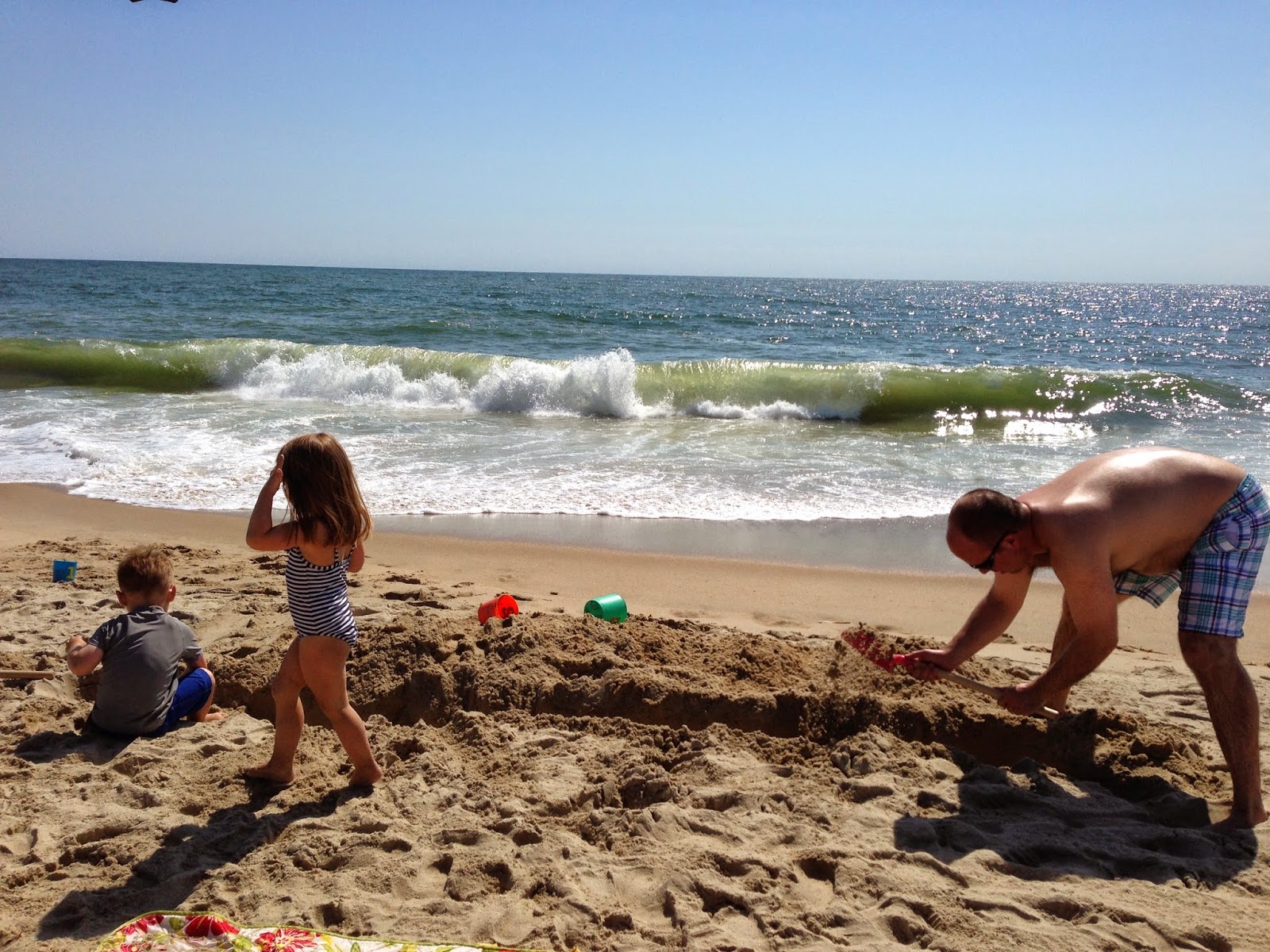 Prior to kids, I looked forward to our week-long summer beach trip all year long. It was a precious opportunity to sleep late, enjoy leisurely conversation with my husband and family, read my way through piles of books, and nap in the sunshine to the sound of ocean waves.
Prior to kids, I looked forward to our week-long summer beach trip all year long. It was a precious opportunity to sleep late, enjoy leisurely conversation with my husband and family, read my way through piles of books, and nap in the sunshine to the sound of ocean waves.
When Ellie was just a few months old and parenthood was still new, we took her to the beach for a long weekend with my parents. I remember that trip clearly: the rhythm of feedings that had to be continued, day and night, the difficulty of squeezing in a few hours on the beach in between naps, the never-ending stuff that had to be carted with us everywhere we went.
I learned that summer that vacation with a child was, well, pretty much like being at home with a child: days filled with caring for the needs of another. If anything, vacation threw off our routines and made us all extra tired and cranky. I sometimes wondered if it was worth it, especially the next summer, when one year-old Ellie started every morning of our week-long beach trip well before 5 a.m.
Amy Julia Becker describes this phenomenon well in her recent post entitled "When Summer Vacation is Hard." She's right about pretty much all of it: the high expectations we have for vacationing with our children, the difficult reality of traveling with babies and toddlers, the increasing pay-offs as children age.
What Becker doesn't address, however, is what those of us with small children are supposed to do about this, besides look forward to the days when our children are older. Do we, as one of my Facebook friends suggested in response to the article, skip the family vacation and spend our money on a couples trip sans kids? Do we adjust our expectations, drink extra coffee, and hope for the best? Do we just stay home?
All are valid choices, even good choices. There is wisdom in recognizing the limitations of this season of life and not investing a lot of money and energy on vacations that are far from restful.
But, fresh off a weekend trip to the beach with another family, well aware of the burdens of vacationing with a toddler and a baby, or in this case, two toddlers and two babies, I'd like to suggest another approach: embracing the realities of stressful car rides and sandy bath tubs and dinners where no one gets to finish a sentence, choosing to believe that the chaos and the extra work and the missed sleep are all, in fact, worth it.
They are worth it, in part, because my three year-old can now appreciate and remember the experience. She is old enough to spend a blissful day at the beach digging and splashing and sipping juice boxes, and her delight is mine too, a delight worth the days of laundry, packing, and driving that made those few happy hours possible.
But there's more than that. Vacationing with kids is worth it because it is real, because in the clash between expectation and reality, desire and duty, our truest selves emerge. We receive the gift of seeing ourselves and others as we really are: in our pajamas, before coffee, before make-up, when our toddler was up in the middle of the night and our baby is screaming for breakfast. It isn't always pretty, but it is how real relationships are made.
When I think back on this weekend, on the other trips we've taken with our kids and other friends and family members, I can think of many of these real moments: of tantrums and snappy comments and tension and occasional outright arguments. They've often felt like the moments that need to be endured in hopes of getting to the good stuff: the post-bedtime ice cream and pleasant conversations, the laughter.
Don't get me wrong. I'd rather it all be easy and fun. But I can look back and see that I know my family and friends better, that our relationships are deeper, because I took my kids on vacation with them.
In a culture where so much of what we call relating happens virtually, via status updates and filtered images, there is real value, I think, in doing life together for a few days, even and perhaps especially when doing life involves the ceaselessly hard and very real work of caring for small children.


